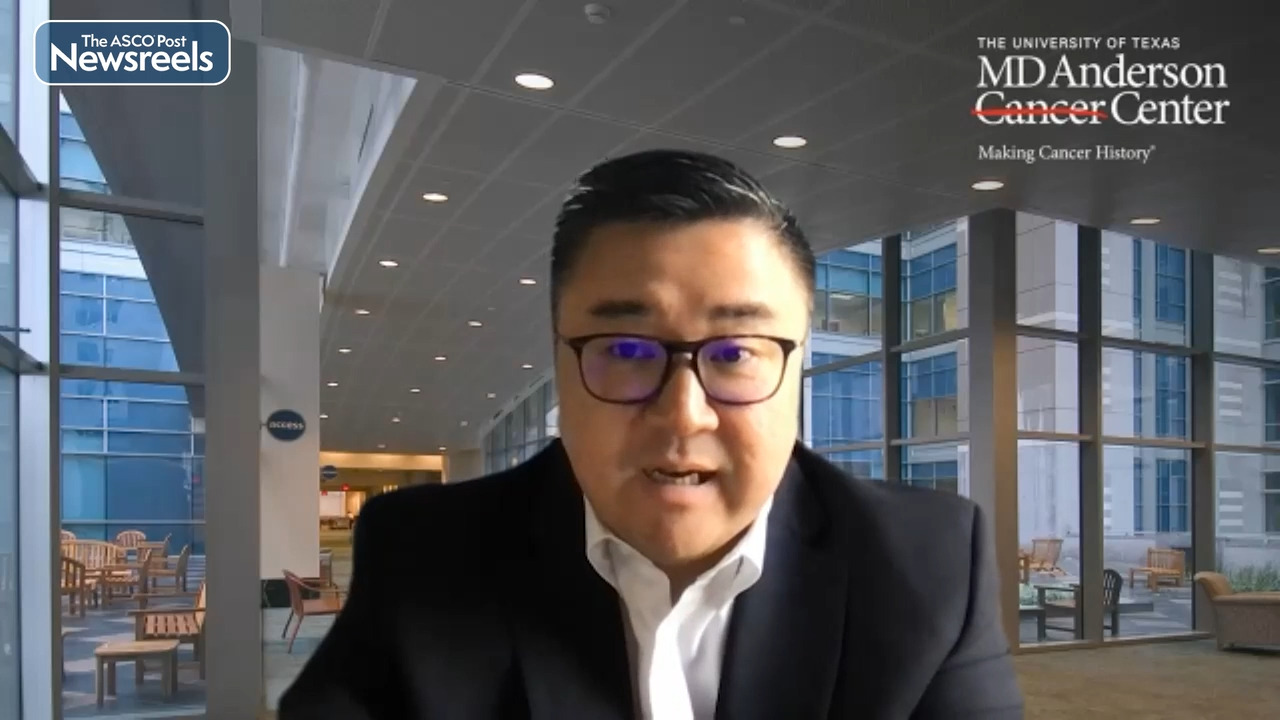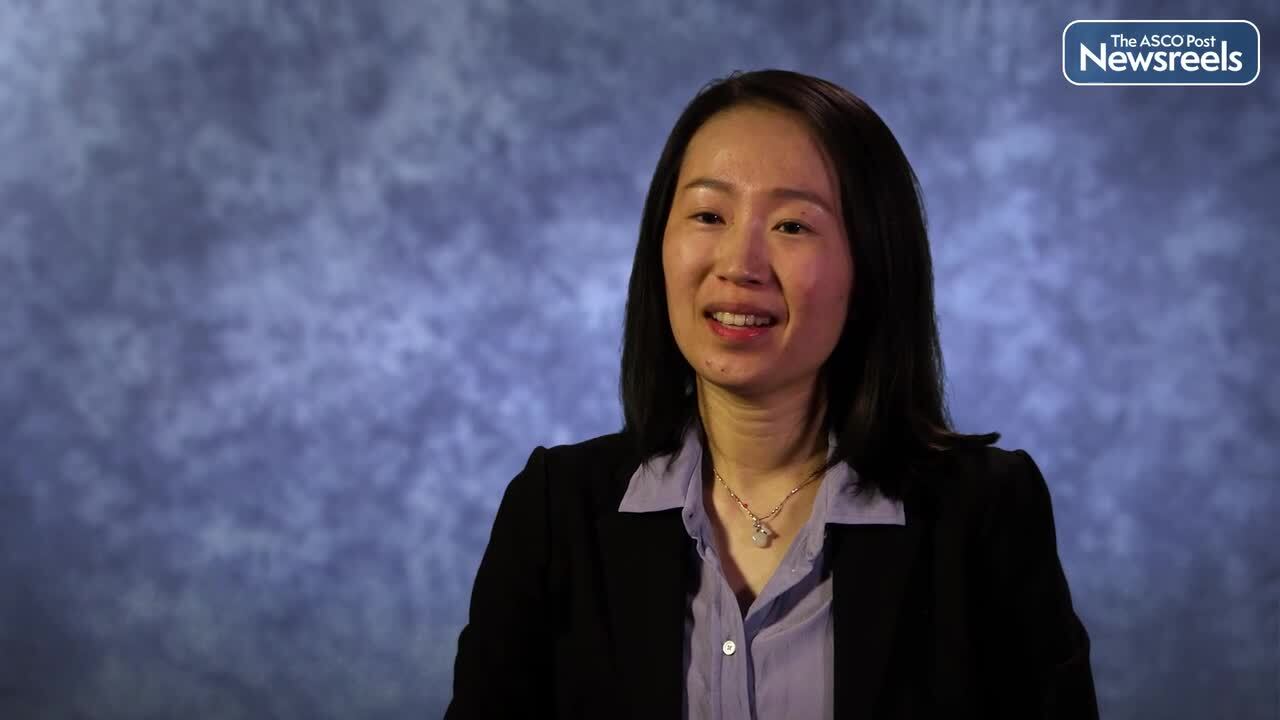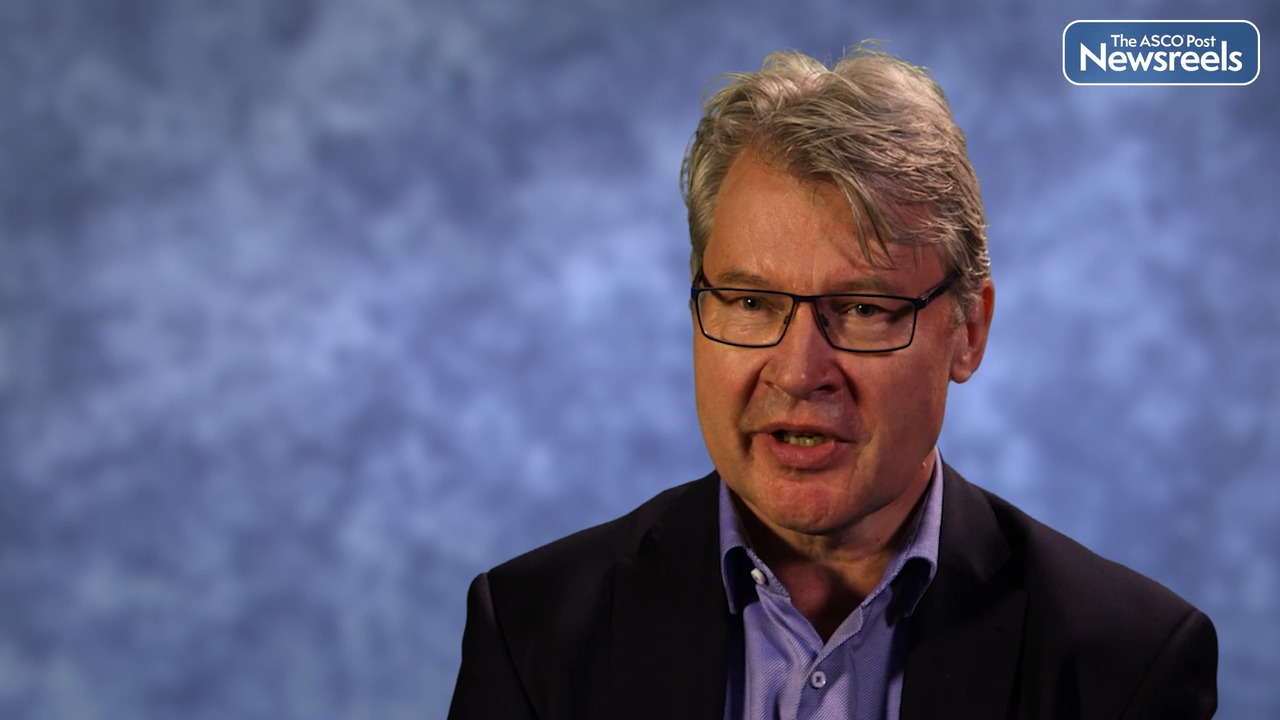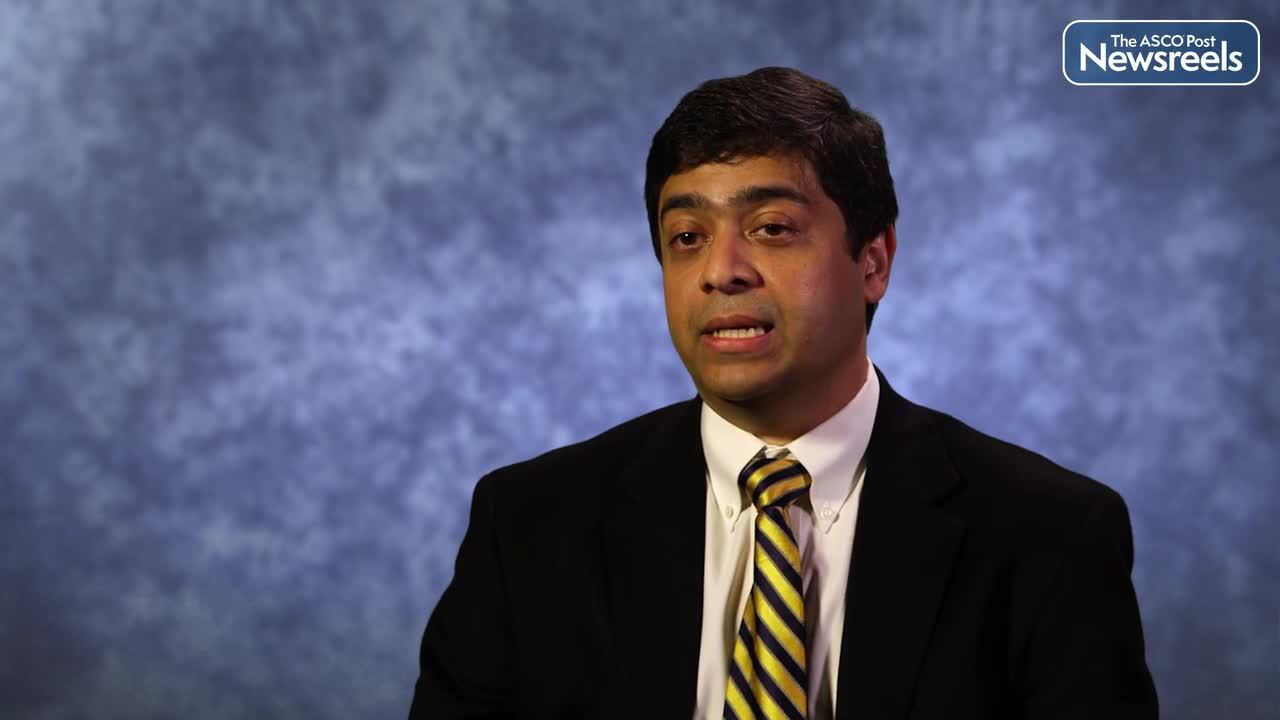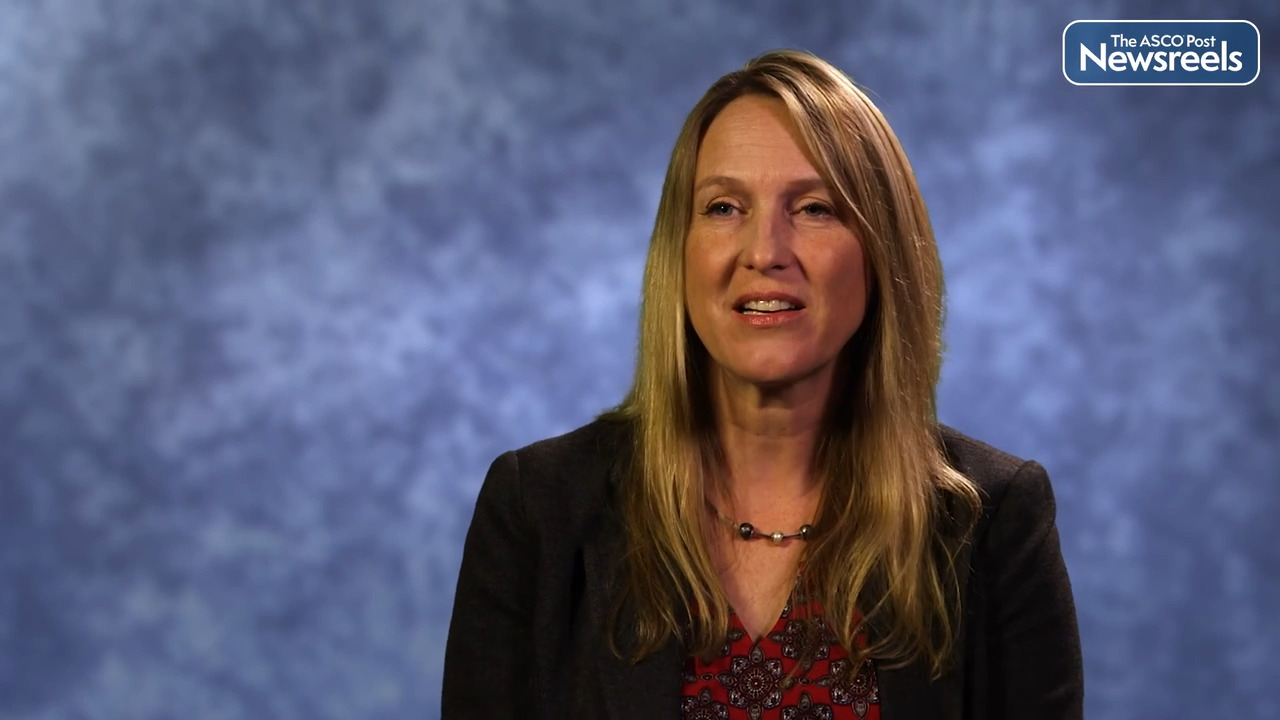Zev Wainberg, MD, on Gastroesophageal Junction Adenocarcinoma: Early Results With Anti-CD39 Antibody Plus Chemoimmunotherapy
AACR Annual Meeting 2022
Zev Wainberg, MD, of the University of California, Los Angeles Medical Center, discusses preliminary data on the safety and efficacy of TTX-030, an anti-CD39 antibody, in combination with budigalimab and FOLFOX for the first-line treatment of locally advanced or metastatic gastric or gastroesophageal junction adenocarcinoma. The study suggests the regimen may prove to be of benefit as a first-line treatment, regardless of combined positive score status (Abstract CT015).
The ASCO Post Staff
Timothy A. Yap, MBBS, PhD, of The University of Texas MD Anderson Cancer Center, discusses results from the PETRA study, a first-in-class, first-in-human trial of the next-generation PARP1-selective inhibitor AZD5305 in patients with BRCA1/2, PALB2, or RAD51C/D mutations in advanced or metastatic ovarian cancer, HER2-negative breast cancer, pancreatic, or prostate cancer. Target engagement was demonstrated across all dose levels, and antitumor activity was observed in selected tumor and molecular subtypes.
The ASCO Post Staff
Yaqi Zhao, MSc, of St. Jude Children’s Research Hospital, discusses findings from the phase III INO-VATE trial, which showed that inotuzumab ozogamicin reduced the signs and symptoms of acute lymphoblastic leukemia associated with a variety of gene and chromosome changes. Future studies may confirm which patients are more likely to benefit from this agent (Abstract CT027).
The ASCO Post Staff
Klaus Pantel, MD, of the University Medical Center Hamburg-Eppendorf, discusses liquid biopsy technologies and biomarkers, with a focus on circulating tumor cells and circulating tumor DNA; clinical applications such as early detection of cancer, improved staging, and surveillance of measurable residual disease; and how best to detect and monitor response to systemic therapies, as well as ways to identify therapeutic targets and resistance mechanisms (Abstract SY08).
The ASCO Post Staff
Vivek Subbiah, MD, of The University of Texas MD Anderson Cancer Center, talks about innovative design of clinical studies that may help demonstrate clinical benefit in precision medicine and advance treatment to deliver the right intervention to the right patient at the right time (Abstract DC06).
The ASCO Post Staff
Alana L. Welm, PhD, of the University of Utah Huntsman Cancer Institute, discusses her findings of a new pathway that regulates the antitumor immune response during metastatic outgrowth. Interfering with a particular isoform of RON kinase may cause metastatic tumors to be swarmed by T cells and killed, suggesting that new approaches to targeting this kinase may be achievable in the near future (Abstract SY32).
